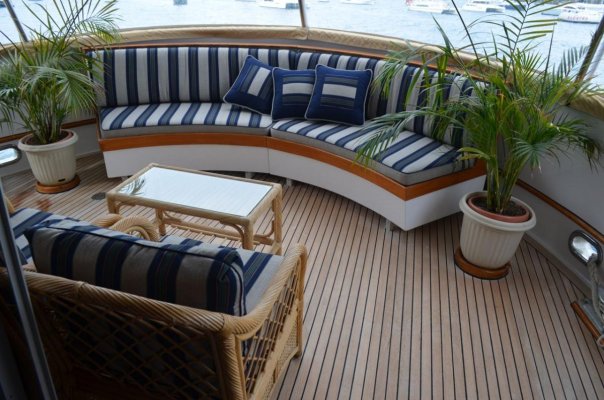Lots of interesting theories so far. In the end mostly anecdotal, as there is almost as many theories as people. However, as a medico I have studied this quite a bit and there does seen to be a genetic predisposition to some extent. My father never got seasick, no matter what, when even I would sometimes feel a bit sleepy, which is the closest I ever get, when we were at anchor for him to fish, and the swell was large. His mother, my grandmother, was once given a special citation and a gift in appreciation after a cruise ship she came back to NZ from the UK on ran into such nasty weather most of the service personnel and crew were debilitated by seasickness, and she rolled up her sleeves and helped out, serving meals to folk in their cabins, and tending to them like a crew member.
Personally, for most, the best advice appears to be, as some have said, pre-load with a calmative like Dramamine or Travacalm or similar, repeated at intervals if necessary, rather than wait to see, and...perhaps more importantly...to try and not fight the movement by continually balancing against the movement, but to try and become one with the vessel, so ones muscles are not in continual motion fighting the movement, as that's the thing that really sets folk off in the end. Hence why the natural and sensible response to seasickness is to go and lie down. Moving with the boat can be helped also by wedging oneself into a seat, preferably in a corner somewhere, and going with the flow, as it were. If you do that, it does not make any difference looking at the sea, the horizon, or a book, for that matter. You will normally be ok. This is why taking the helm is often helpful, because one tends to do exactly that. You wedge oneself into a set position, then go with the boat's movement - that and because you are concentrating so much on steering, you forget to fight the motion.

